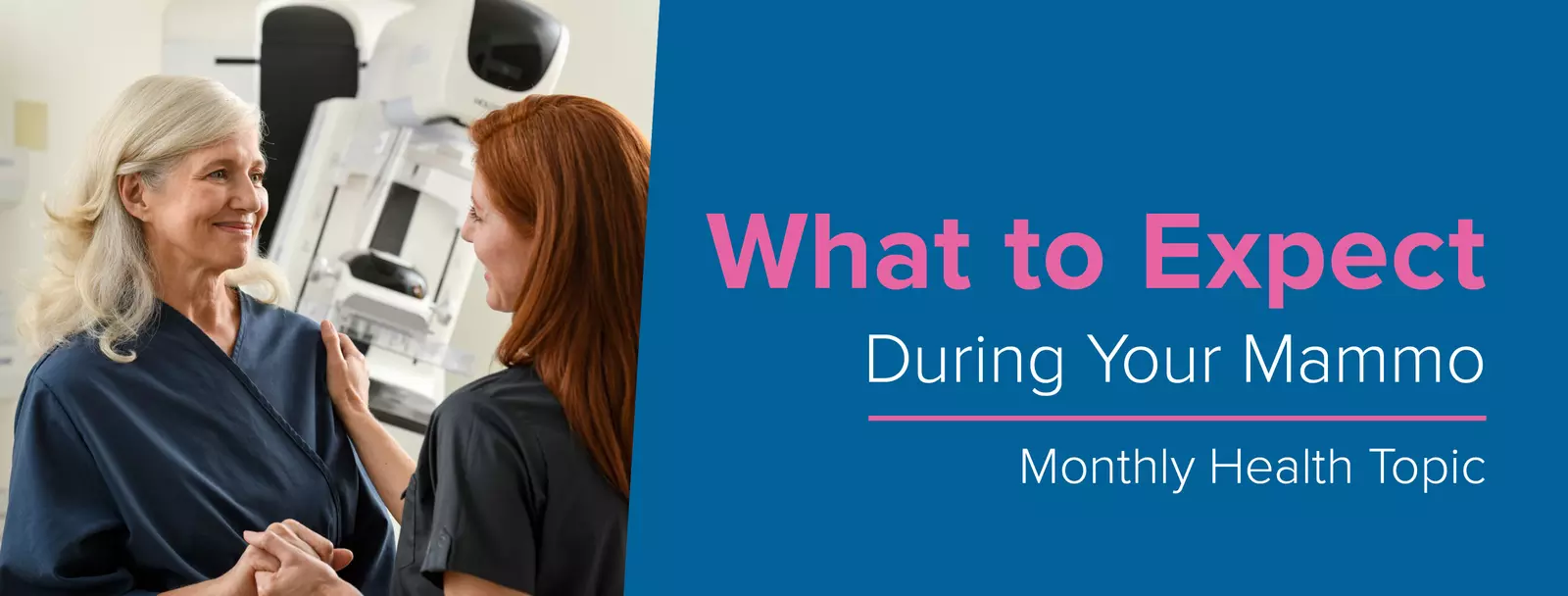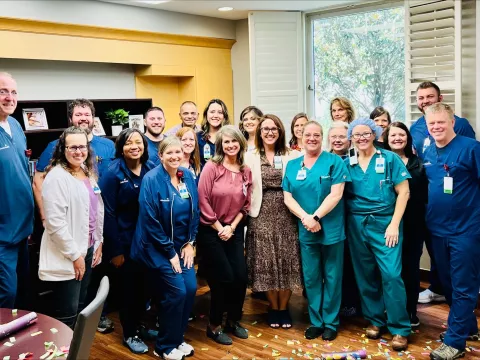- AdventHealth

The mammo, the myth, the legend. Every woman knows about it, but not every woman knows exactly what to expect if you've never done it before. And when your doctor tells you it’s time for your first mammogram, it may be slightly nerve-wracking as you contemplate this rite of passage.
Whether you are approaching the age of 40 or have a higher risk related to a family history of breast cancer, it’s normal to have a little apprehension about scheduling your first mammogram appointment.
Although getting a mammogram might cause some nervousness, it’s necessary to remember why you’re doing it and prepare yourself mentally before your appointment.
Take Control of Your Breast Health
It might be tempting to procrastinate that phone call to schedule your mammogram. Or you might be concerned with the rest of your family and put your own health needs at the back of the line. When it comes to your mammogram, though, it’s important to dig deep and get it done. Mammograms save lives and detect any changes early so breast cancer can be identified and treated in its earliest stages and increase chances of survival.
Mammograms Are Not Painful
Mammograms can be uncomfortable, but they aren’t painful. Breast compression is necessary to get the best images. Although everyone has a different pain threshold, a mammogram should not be painful unless your breasts are already tender. If you do feel pain, let the mammographer know and they can help you.
What Doctors Are Looking For
After your mammogram, a radiologist will evaluate your images. They look for different types of changes in breast tissue, which include calcifications, masses, and other suspicious areas that could be signs of cancer.
If it's your first mammogram, your radiologist will not have any prior images as comparisons, so it is possible that you could get a call back for more images to be taken. Don't panic. Most findings end up being benign.
Why Mammograms Are Important
A mammogram is such a powerful tool because of its ability to catch breast cancer early. In fact, it can detect breast cancer up to two years before a tumor can be felt by you or your doctor.
Catching cancer early means:
· Therapies like breast conservation therapy will be most effective.
· Treatment can begin early, possibly before the cancer spreads to other parts of your body.
· You’ll have the best possible chance for a cure.
Know Your Risk for Breast Cancer
It’s important to know your risk for breast cancer. Some risk factors you can control, like your weight and lifestyle. Others you can’t, including:
· Age
· Density of breast tissue
· Family history of breast cancer
· First menstrual period before age 12
· Genetic mutations BRCA1 and BRCA2
· History of fibroids or other benign breast conditions
· Race and ethnicity
Feel Empowered with Preventive Care
If you’re between the ages of 20 and 40, you should have a clinical breast exam by your doctor at least every three years. If you’re 40 or older, an annual screening mammogram is recommended.
If you haven’t had a mammogram in the past year and you’re over age 40 with no abnormal symptoms, you can self-refer for a screening mammogram. Simply make an appointment at one of our AdventHealth breast care locations by visiting GetYourMammoGA.com or calling Call800-776-5102.
Choose the health content that’s right for you, and get it delivered right in your inbox.
Recent News
AdventHealth Gordon is proud to announce its recognition as the #6 top small hospital in Georgia by Georgia Trend magazine. This prestigious ranking highlights AdventHealth Gordon's commitment to...
We are excited to share our December edition of Northwest Georgia Health News. This episode celebrates your work and commitment to delivering the best health care in our region by embodying our...
AdventHealth Gordon hosted a cancer care event to celebrate the holiday season with patients and team members. The event featured John L Coble Elementary School’s bell choir, Joshua Lee on the piano...
AdventHealth Gordon is hosting the AngioScreen bus from 8 am to 3 pm, Tuesday, Dec. 10. The AngioScreen bus will be parked in front of Resource Building 3 on the campus of AdventHealth Gordon. An...
AdventHealth Medical Group Family Medicine at Adairsville Health Park is hosting the AngioScreen bus from 8 am to 3 pm, Wednesday, Nov. 20. The AngioScreen bus will be parked at the front entrance of...
This past weekend, AdventHealth Gordon hosted a free lung cancer screening at the AdventHealth Harris Radiation Therapy Center, offering uninsured patients a critical opportunity for early detection...
We had the pleasure of hosting a legislative dinner with our local delegation from Georgia to discuss the priorities that will shape 2025 and beyond for AdventHealth Georgia. It was a wonderful...
In gratitude to the men and women who have served in the United States Armed Forces, AdventHealth has partnered with local Chick-fil-A restaurants to host a special Veterans Day lunch event. This...
AdventHealth Gordon was honored to sponsor this month’s Calhoun Gordon County Chamber of Commerce booster breakfast. The panel discussion included Craig Murray, MD, Briton Jordan, MD, Carl Lokko, MD...
AdventHealth invites the Gordon community to kick off Thanksgiving with the Rome Turkey Trot and Feel Whole Stroll on November 28, 2024, on the AdventHealth Redmond ECO Greenway. The festivities start...
AdventHealth Gordon joins a premier group of organizations that have received Pathway to Excellence® designation from the American Nurses Credentialing Center (ANCC).
AdventHealth Gordon is hosting the AngioScreen bus 8 am to 3 pm, Tuesday, Oct. 29. The AngioScreen bus will be parked in front of Resource Building 3 on the campus of AdventHealth Gordon. An...












